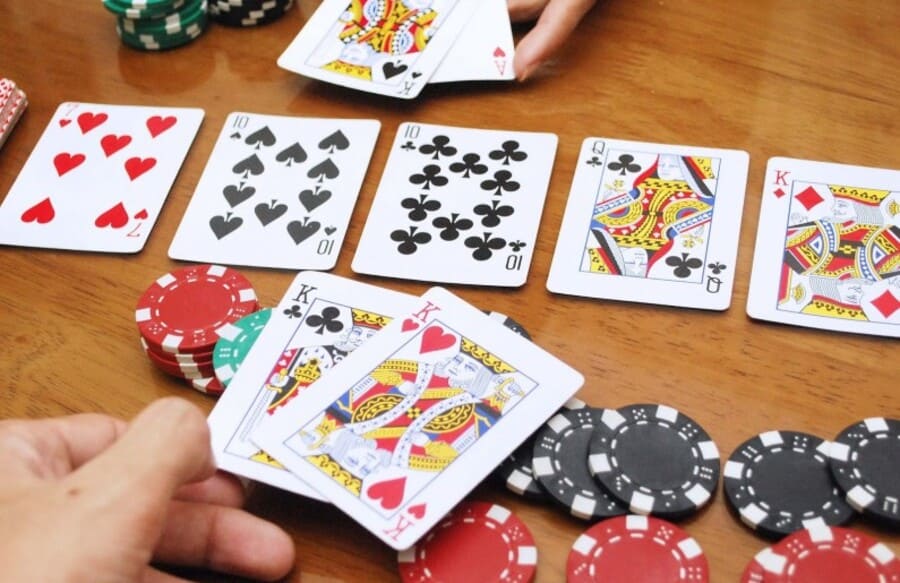There are many different strategies and tricks to win poker, but the most important thing is to stick with your plan. You must be able to make tough decisions when the cards are against you and be willing to suffer through bad luck and bad beats. It’s also vital to stay focused and avoid distractions at the table.
One of the most common mistakes beginner players make is trying to play too conservatively to avoid losing too much money. However, this can actually backfire and lead to you making worse decisions. Instead, you should try to be more aggressive and force your opponents to overplay their hands by raising a lot with strong value hands. This will give you a much bigger edge and increase your chances of winning.
Getting to know your opponents is another key element of winning poker. By paying attention to their behavior and tendencies, you will be able to understand when they are trying to bluff or have a good hand. This will allow you to make better calls and folds and improve your chances of winning. You should also try to get your opponent’s position as often as possible, as this can be a massive advantage when it comes to bluffing.
You should also pay attention to your own tendencies and be aware of how you are playing each hand. You should always be looking to improve your game and find ways to make more money at the table. This is especially true if you are at a low stakes table. Eventually, you will be able to move up the stakes and begin making more money than ever before.
The divide between break-even beginner players and big winners is often much smaller than people believe. It is usually just a few small adjustments that can allow you to start winning at a higher rate than you currently do. Generally, this has to do with starting to view the game in a more cold, detached, mathematical, and logical way than you presently do.
You must be able to recognize and punish your opponents when they are making mistakes. In order to do this, you must be able to read their actions and understand what they are thinking. Once you have a grasp on this, you can then adjust your strategy to take advantage of these weaknesses.
Lastly, you must learn how to control your emotions at the table. It is no secret that poker can be very frustrating at times, and it is essential to keep your emotions in check. If you cannot, you will be tempted to call a bad call or bluff when you shouldn’t.
Finally, it is crucial to remember why you started playing poker in the first place. It is likely that you were not in it for the money, but rather because you enjoy the game and its social aspect. If you can keep these points in mind, you will be well on your way to becoming a big winner!

